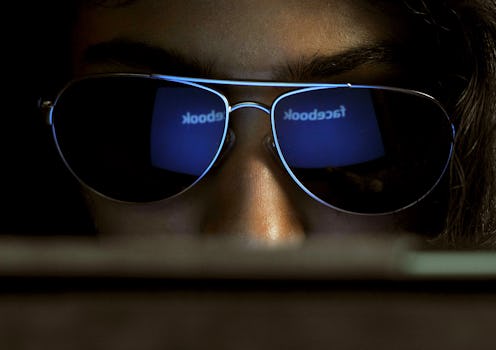Books
Is Social Media Making Novels Boring?
Young people today are apparently spending so much time online that even one of the best-selling novelists of all time can’t think of anything interesting to write about them. Dame Jacqueline Wilson, author of more than 100 books mainly about teenagers and the issues they face, announced at Hay Festival that she is finding it “quite difficult” to come up with any new stories. “If everybody’s social networking or whatever,” she told her audience, “they’re not actually going out and doing stuff.”
Although I hate to argue with the genius that brought us The Story of Tracy Beaker, I’m going to have to disagree with her on this one small point. Since the invention of social media, teenagers’ lives are more complicated than ever. The online world is affecting the way teens talk to each other, the way they do schoolwork, and the way they have sex; it’s connecting friendships, but it’s also constantly inventing horrible ways for teens to bully each other — and books that address this can be super-emotional, frightening, or even uplifting.
Jacqueline Wilson is now turning her attention to rewriting the classic novel What Katy Did in a more disability-positive way, so I can’t complain too much, because that’s going to be great. Instead, here are 8 books set in cyberspace that show just how much today’s teenagers have got going on.
To Die For by Catherine Jinks
I read this book as a child, and it now seems to be long out of print. If you’re lucky enough to find it lurking in a charity shop (or if you manage to grab the copy selling on Amazon for $0.01), you’ll find a sinister story about a teenage fangirl navigating the dangerous (and, in 2002 when this book was written, relatively new) world of online chatrooms.
#scandal by Sarah Ockler
#scandal is very Jacqueline Wilson-esque in its comedic handling of an upsetting issue. Cruel rumors have been plaguing teens for years, but the ability to broadcast gossip online (and tag victims in compromising photos) has pushed this into overdrive. Ockler’s protagonist faces bullying both online and in the real world until she can work out who is hacking her Facebook account, and make them stop.
Unfriended by Rachel Vail
When Truly ditches her best friend Hazel to sit at the Popular Table, Hazel gets her revenge through a cyberbullying campaign that turns Truly into a social pariah. Unfriended shows up just how easy social media makes it for teens to spread lies, and pretend to be someone they’re not.
Girl Online by Zoe Sugg
Not all books based in virtual reality have to be a downer. English vlogger Zoe Sugg (known online as “Zoella”) wrote this fictionalized version of her own experience finding viral fame and success online.
Gossip Girl by Cecily Von Ziegesar
Before the hit TV show, Gossip Girl was a series of books about New York teenagers whose every movement is discussed online by an anonymous blogger. The books were every bit as glamorous as Blake Lively and Leighton Meester made them look — and every bit as brutal.
Don’t Call Me Baby by Gwendolyn Heasley
Imogene’s mother runs Mommylicious, a popular mommy blog. Imogene has grown up in front of an audience: her name was chosen by a poll before she was even born; her first steps, first dance, first braces, and first period have all been blogged about by her mom... and all her classmates read it. Don’t Call Me Baby explores a very real phenomenon: a generation of kids growing up on their parents’ social media pages.
Free to Fall by Lauren Miller
Free to Fall is set in a near-future where one app makes everybody’s decisions for them. As teens increasingly use apps like Periscope to let strangers guide their decisions in real-time, this doesn’t even sound particularly far-fetched. Think Dave Eggers’ The Circle (the book that terrified us by describing a dystopia not that far from our real world) for a young adult audience.
Snail Mail No More by Paula Danzinger and Ann M. Martin
This book, written in 2000, is practically ancient in Internet terms. The sequel to P.S. Longer Letter Later, it follows two pen pals who discover that they can become closer than ever thanks to the amazingly high speed of sending emails! It’s adorably old-fashioned, but the problems faced by the girls are timeless; those same conversations could be taking place just as easily on Whatsapp today, or face-to-face 30 years ago. Perhaps teenagers haven’t changed too much after all.
